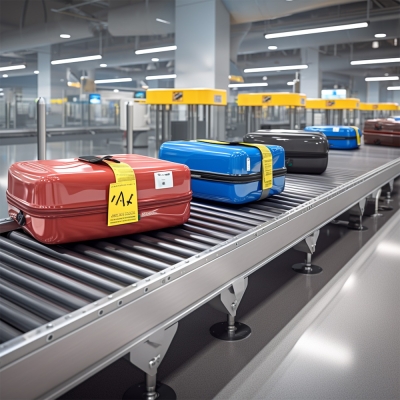Embracing Sustainable Logistics: Paving the Way for a Greener Future

In an era marked by increasing environmental awareness and the urgent need to address climate change, the logistics industry has emerged as a pivotal player in the quest for a sustainable and greener future. With the global movement towards reducing carbon footprints and embracing eco-friendly practices, the adoption of sustainable logistics is not only a responsible choice but a necessary one. This article delves into the significance of sustainable logistics and how it is paving the way for a greener tomorrow.
Traditional logistics practices have long been associated with significant environmental drawbacks. The reliance on fossil fuels for transportation, inefficient route planning, over-reliance on single-use packaging, and wasteful inventory management contribute to excessive greenhouse gas emissions, air and water pollution, and the depletion of natural resources. The consequences of these practices are dire, leading to accelerated climate change, loss of biodiversity, and environmental degradation.
In recent years, there has been a notable shift within the logistics industry towards embracing sustainability. This transition is not only motivated by environmental concerns but also by economic considerations, as businesses recognize the cost-saving potential of greener practices. Sustainable logistics involves rethinking the entire supply chain process, from sourcing raw materials to the final delivery of products.
Key Pillars of Sustainable Logistics
Efficient Transportation: One of the cornerstones of sustainable logistics is the adoption of energy-efficient transportation methods. Electric and hybrid vehicles, biofuels, and even innovative options like drones and autonomous vehicles are reducing the carbon footprint of transportation.
Smart Route Planning: Advanced technology, including GPS and route optimization algorithms, enables logistics companies to plan routes that minimize distance and maximize fuel efficiency. This not only reduces emissions but also lowers operational costs.
Green Packaging: Sustainable packaging materials, such as biodegradable and recycled options, are gaining traction. Companies are also exploring ways to minimize packaging waste through thoughtful design and right-sizing.
Inventory Management: By implementing data-driven inventory management systems, companies can prevent overstocking and reduce waste. This leads to less unnecessary production and lowers energy consumption.
Collaborative Logistics: Sharing transportation resources through collaborations and partnerships can significantly reduce the number of vehicles on the road, thus decreasing congestion and emissions.
The benefits of adopting sustainable logistics practices are multifaceted. Firstly, there is a positive environmental impact through reduced emissions, decreased pollution, and a conservation of natural resources. Secondly, businesses stand to gain improved brand reputation, increased customer loyalty, and a competitive edge as consumers prioritize environmentally responsible companies. Moreover, cost savings through reduced energy consumption, streamlined processes, and optimized inventory management are clear advantages.
However, the transition to sustainable logistics is not without its challenges. Initial investment costs, technological barriers, and the need for behavioral changes among stakeholders can pose hurdles. Nonetheless, forward-thinking companies understand that the long-term benefits far outweigh these challenges. Technology plays a pivotal role in the transformation towards sustainable logistics. The rise of the Internet of Things (IoT), artificial intelligence, and big data analytics enables real-time monitoring of shipments, precise demand forecasting, and efficient warehouse management. These innovations empower companies to make informed decisions that optimize resource usage and reduce waste.
The shift towards sustainable logistics is a vital step in the journey towards a greener and more sustainable future. As the pressure to address climate change intensifies, businesses and governments alike are recognizing the urgent need to revamp traditional logistics practices. By embracing sustainable logistics, companies can not only reduce their environmental impact but also lead the way in shaping a world where economic growth and environmental stewardship go hand in hand. As consumers demand greater accountability and transparency, the logistics industry can be a driving force in creating a planet that thrives for generations to come.

